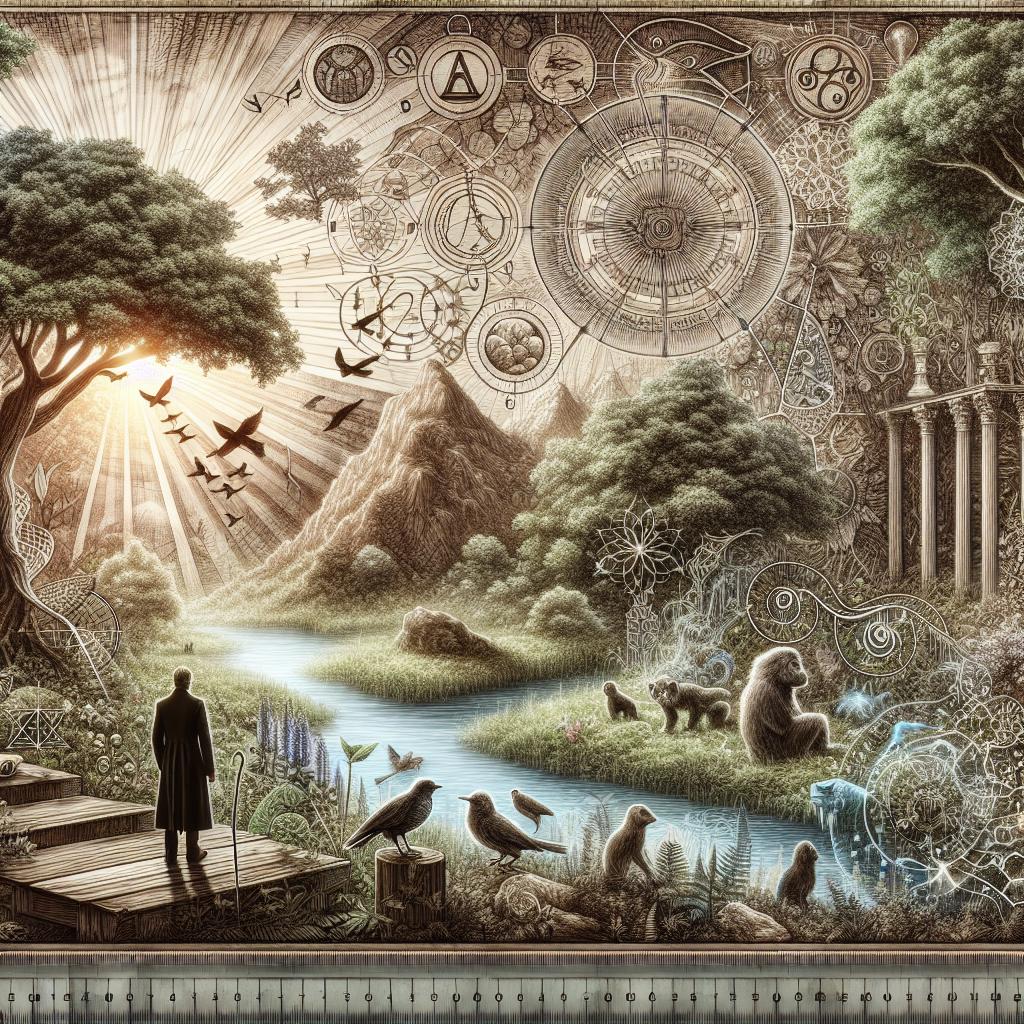
Dismantling Darwin's Arguments Against God: A Christian Perspective
Published: 15 September 2024
Darwin's Arguments Against God
Charles Darwin, the renowned naturalist and author of On the Origin of Species, had several arguments against the existence of God and rejected the doctrines of Christianity. In this article, we will explore his main arguments and provide a Christian, creationist perspective on each point.
1. Darwin rejected Genesis as true history
Darwin believed that different species originated through the slow process of evolution, which contradicted the biblical account in Genesis. He criticized the Old Testament for its "manifestly false history" and attributed it to the beliefs of "barbarians." However, this is a flawed perspective. The "false history" lies not in Genesis but in Darwin's theory, which requires long ages that are unsupported by scientific evidence.
Why This Matters: Understanding the accuracy and reliability of Genesis is crucial in evaluating Darwin's theory of evolution. If Genesis is historically accurate, then Darwin's theory is incompatible with biblical truth.
Think About It: How does your understanding of Genesis impact your view of evolution?
2. Darwin rejected the miraculous in Christianity
Darwin questioned the credibility of miracles mentioned in Christianity. He argued that as our knowledge of natural laws increased, miracles became less plausible. However, this view fails to recognize that Christianity is a religion of miracles. Miracles are not breaks in natural laws but additions to them, demonstrating God's power and authority over creation.
Why This Matters: The rejection of miracles undermines the supernatural nature of Christianity and diminishes the credibility of divine intervention throughout history.
Think About It: How do you reconcile your belief in miracles with scientific explanations?
3. Darwin resented the biblical doctrine of future judgment
Darwin found it difficult to accept the idea that non-believers would be eternally punished. He considered this doctrine to be "damnable." However, he overlooked the biblical teaching that God desires all people to come to repentance and provides a way of escape through Jesus Christ.
Why This Matters: The concept of eternal punishment challenges our understanding of God's justice and His desire for all people to be saved.
Think About It: How do you reconcile the idea of eternal punishment with God's love and mercy?
4. Darwin thought that natural selection rendered design redundant
Darwin believed that the process of natural selection explained the design in nature, making the need for an intelligent Creator unnecessary. However, this perspective ignores the fact that natural selection can only act upon existing genetic information and cannot produce entirely new features. The complexity and beauty in nature still point to an intelligent Designer.
Why This Matters: Recognizing the limitations of natural selection helps us appreciate the evidence for intelligent design in the natural world.
Think About It: How does the complexity and beauty of nature support your belief in an intelligent Creator?
5. Darwin thought that natural selection accounted for both happiness and misery in the world
Darwin proposed that natural selection could explain both happiness and suffering in the world. He questioned why a benevolent God would allow millions of animals to suffer throughout history. However, this view fails to acknowledge that suffering and death entered the world as a result of human sin, not as part of God's original design.
Why This Matters: Understanding the origin of suffering helps us grapple with questions about God's goodness in a fallen world.
Think About It: How do you reconcile the existence of suffering with God's love and sovereignty?
6. Darwin discounted the inner conviction of others as evidence for God
Darwin dismissed the inner conviction that people have about their relationship with God, arguing that such beliefs can be explained by cultural influences. However, this perspective overlooks the unique peace and assurance that comes from a personal relationship with Jesus Christ, which cannot be explained solely by cultural factors.
Why This Matters: Recognizing the personal conviction of believers challenges the notion that faith is solely a product of cultural conditioning.
Think About It: How does your personal relationship with God impact your faith?
In conclusion, Charles Darwin had several arguments against the existence of God and rejected the doctrines of Christianity. However, his arguments overlook important aspects of biblical truth and fail to provide a comprehensive understanding of the evidence for God's existence and involvement in the world. As Christians, we should critically evaluate and engage with these arguments while remaining faithful to the biblical perspective on creation.
